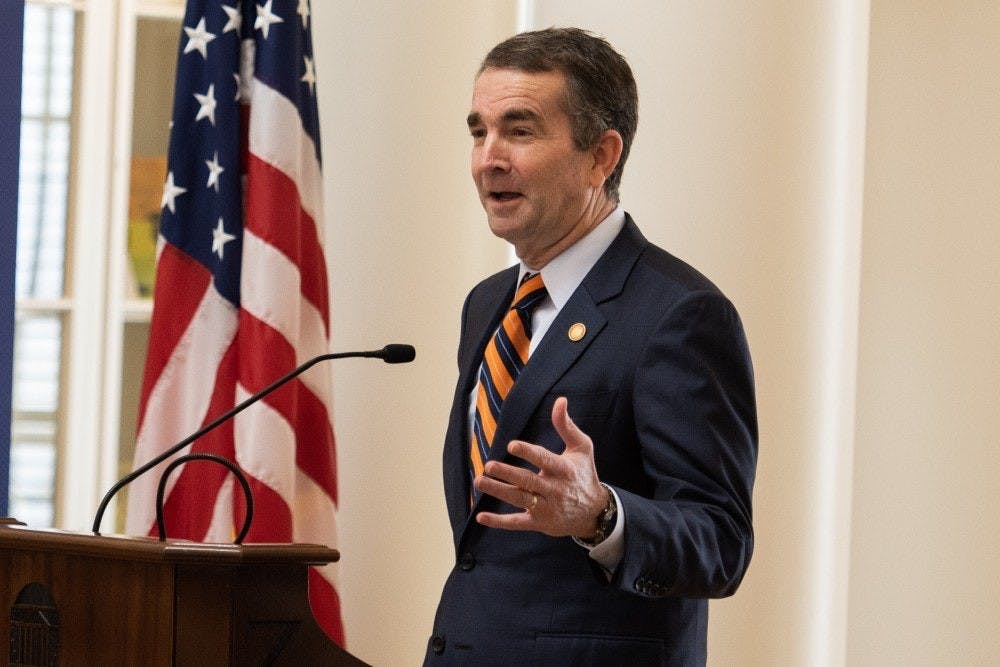It has been just over a month since Virginia Gov. Ralph Northam stepped into the scandalous Democratic political landscape. When a blackface photograph of Northam from his medical school yearbook page circulated, Democrats nationally raised their voices in protest, and questioned his ability to adequately represent the Democratic party and effectively serve as the governor of Virginia henceforth. The political storm raged on, as Northam’s own state party “abandoned him, its leaders furious that he had not resigned as they expected he would…Top Democratic presidential contenders issued calls for Mr. Northam to step down, as did House Speaker Nancy Pelosi.” However, a few short weeks later, the conversation has subsided and the scandal has largely blown over. While Northam’s behavior was utterly offensive and reprehensible, especially as a representative of our Commonwealth, his decision to remain in office supports the will of the black electorate as well as his responsibility to atone for his past actions of racial injustice.
The University’s renowned politics professor Larry Sabato published a poll following the plurality of political scandals that have riddled the state in the past few months. The poll illustrates an interesting dichotomy in response to Northam’s conduct — while “perceptions of Northam’s job performance have taken a substantial beating,” impeachment is not favored among the majority. Less than a third of respondents believed that Northam should resign or be impeached. Further, most black Virginians reject his resignation or impeachment amidst the hazy mess of Virginia politics. Among all Virginians, black residents “show the most support for Northam staying: only 37% think resignation is appropriate while 58% believe he should not leave office.” I think it is fair to assume that the group that most poignantly felt the offense of Northam’s behavior would vehemently push for his resignation — however, “black Virginians are neither taking their cues from politicians nor sacrificing the pragmatism that characterizes the black electorate. Instead, they are seizing the opportunity to attempt the transformation of a racist incident into a higher likelihood of getting their policy demands prioritized.” It is not unencumbered support for Northam that drives the black caucus majority rejection of resignation but a recognition that Virginia is on the precipice of adopting troubling, racially discriminatory legislation — and they are choosing the lesser of two evils.
Northam should attempt to reshape and redefine racist expression and rhetoric in politics by rehabilitating his image and legacy and responding to his moral pitfall with an intense focus on policies that would address inequities in the black community. As far as we know, Northam has since vowed to focus on racial equity, addressing the issues of “affordable housing, maternal mortality, more equitable funding of black colleges, removal of Confederate monuments, transportation equity, and a listening tour to hear black Virginians’ policy preferences.” On Friday, Northam took a step in redressing his unacceptably racist behavior for the good of the black community — he signed legislation to establish an advisory board for African Americans. Northam aims to ensure the African American community has a permanent voice, a key condition to building a “more accessible, inclusive and equitable commonwealth.”
I too worry about the dangerous precedent an impeachment or resignation in this situation may set for those considering a career in politics, as well as the future of politics itself. For better or for worse, mainstream media and politics are inextricably bound, largely dictating our political discussions and the decisions that follow. We must ask ourselves if social media should be the ultimate arbiter of fate in the political arena. We have unfettered access to politicians’ pasts, and while this is warranted given their voluntary entrance into the public political sphere, we should take caution when assigning moral weight to the floodlighting of our social media platforms. The media’s role in politics is unprecedented and will challenge all of us to more critically deliberate upon our actions, a call for self-reflection we desperately need. Yet, we also need to consider the significance we are willing to assign to new media in these contexts and the implications of such. Given the young generations’ deep entrenchment in social media, it will become increasingly more common for young people to shy away from politics for fear of the surfacing of past indiscretions.
There may not be a best step forward for Northam — however, I believe this scandal has sparked an opportunity to address the potency of our ingrained “legacy of casual racism.” The best way for Northam to repent is to stay in office and address the issues of structural racism that still plague the Commonwealth.
Lucy Siegel is an Opinion Columnist for The Cavalier Daily and was an Opinion Editor for the 128th term of The Cavalier Daily. She can be reached at l.siegel@cavalierdaily.com.







